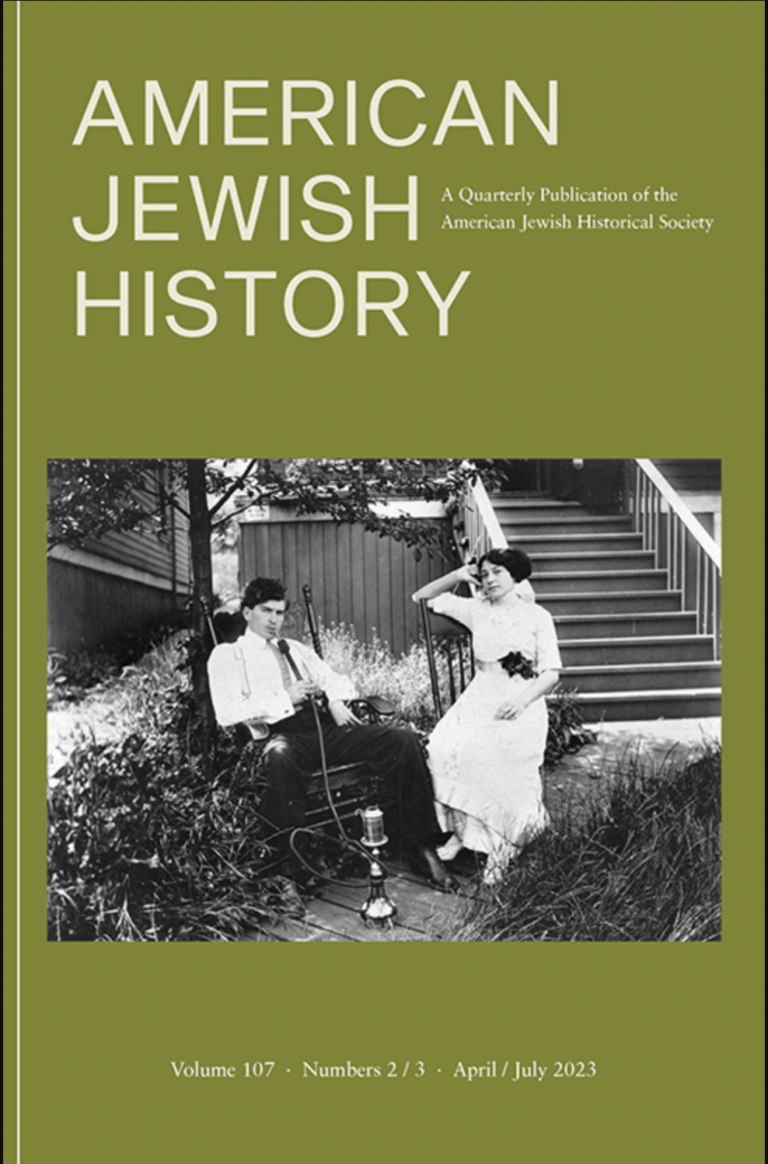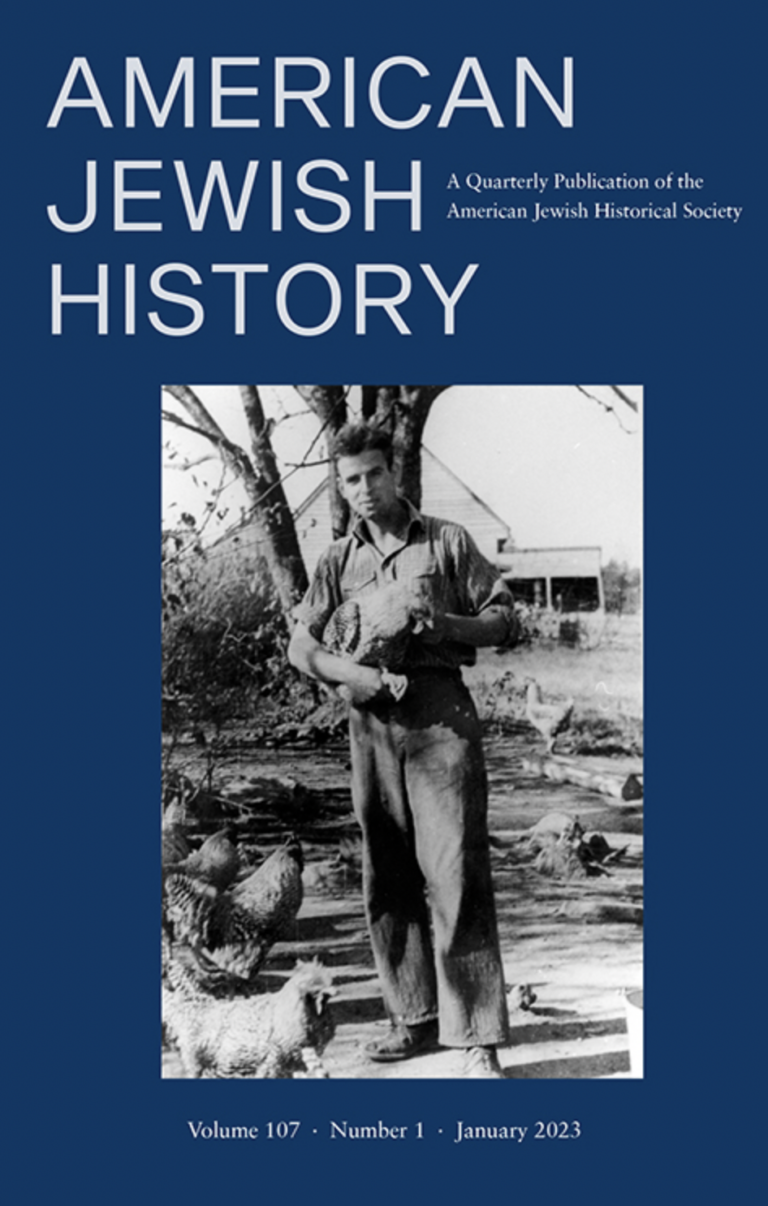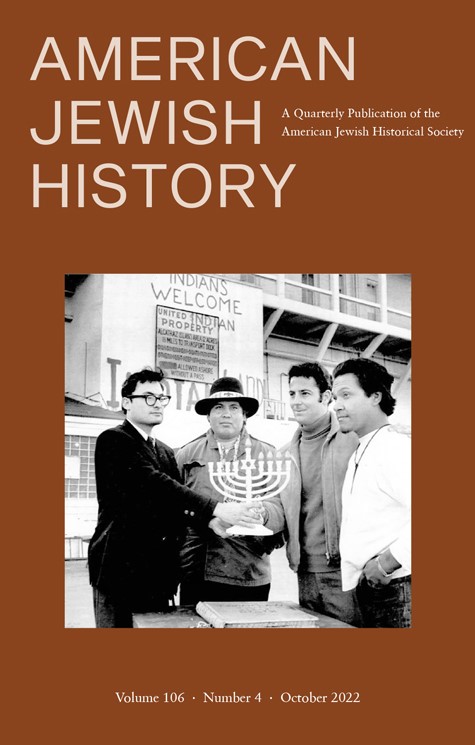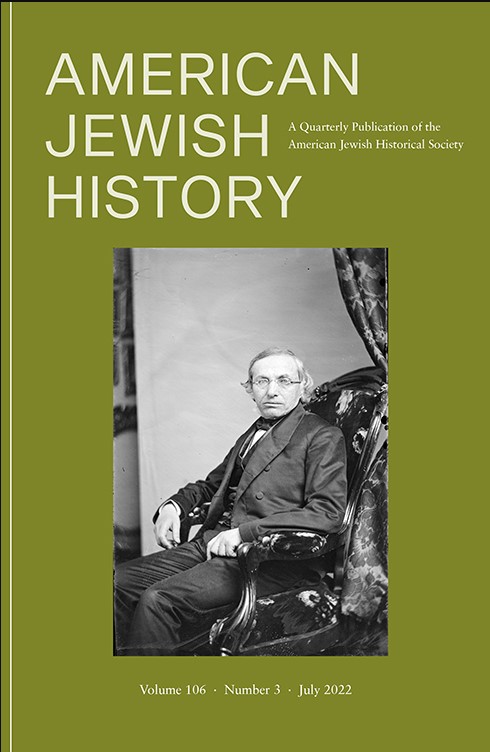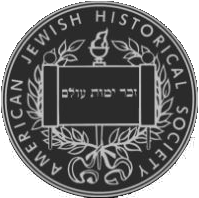We are delighted to share another issue of American Jewish History with you. Putting together an issue gives us the opportunity to work together, and to build from each other’s strengths and interests. Each of us has a long affiliation with the American Jewish Historical Society, but we are based in academic institutions all over the country, and our research has taken us in different directions. Here is a little information about each of us.
Judah Cohen is the Lou and Sybil Mervis Professor of Jewish Culture and professor of musicology at the Jacobs School of Music at Indiana University in Bloomington, IN. His research has focused on music in Jewish life, American music, musical theater, popular culture, Caribbean Jewish history, diaspora and medical ethnomusicology. His most recent book is Jewish Religious Music in Nineteenth Century America (2019), and his current work includes a series of biographical essays about Debbie Friedman. In addition to his scholarly work, Judah was recently appointed associate vice provost for faculty and academic affairs at his university.
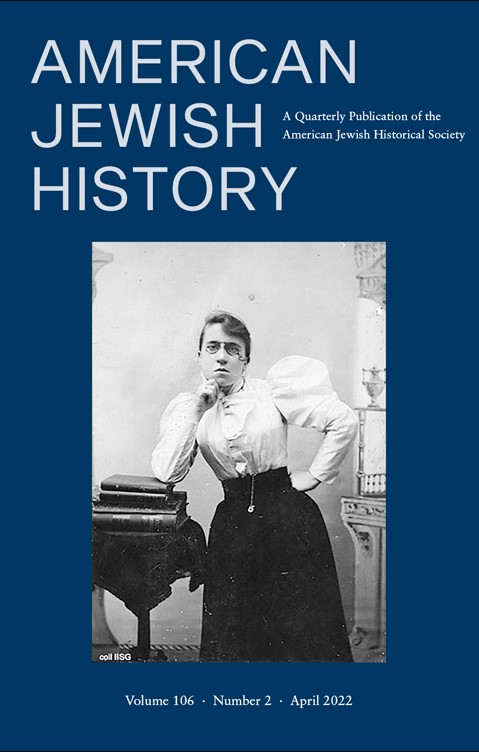
Jessica Cooperman is an associate professor of religion studies and director of Jewish studies at Muhlenberg College in Allentown, PA. Her current research focuses on projects for promoting Jewish-Christian understanding in the twentieth century, and a history of Passover celebrations in the United States. She is the author of Making Judaism Safe for America: WWI and the Origins of Religious Pluralism, which was a runner-up for the Saul Viener Book Prize in American Jewish History in 2019.
Marni Davis is an associate professor of history and affiliate faculty in urban studies at Georgia State University in Atlanta, GA. She is the author of Jews and Booze: Becoming American in the Age of Prohibition, which was a finalist for the Sami Rohr Prize in Jewish Literature. Her 2019 article in American Jewish History, “Toward an Immigrant Turn in Jewish Entrepreneurial History: A View from the New South,” was awarded the Wasserman Prize for best article published by the journal that year. She is currently working on a book about the intertwined histories of Black and Jewish neighborhoods in southern cities during the Jim Crow era.
Our Managing Editor, Nick Underwood, is an assistant professor of history and chair of Judaic studies at the College of Idaho in Boise, ID. Nick’s recent book, Yiddish Paris: Staging Nation and Community in Interwar France, was a National Jewish Book Award finalist in 2022.
As we think collectively about how to shape each new issue of American Jewish History, we draw upon our different perspectives on the field. Sometimes we intentionally plan and produce issues exploring different facets of a particular theme. One might assume this to be the case for our current issue, since all three scholarly articles feature, to varying degrees, the editor, publisher, and lay minister, Isaac Leeser (1806-1868). But in fact, Leeser’s overarching presence in this issue is a happy accident. It’s also indicative of his unabated relevance for historians of American Jewish religion and culture.
The three articles in the current issue engage with Leeser’s work and legacy in various ways. While David Weinfeld offers a thorough reappraisal of Leeser’s view of race and slavery in the United States, Jeffrey Marx and Laura Yares highlight Leeser’s role within nineteenth century debates over how American Jews should worship, how they should educate their young people, and how they interacted with their non-Jewish neighbors. Together, we think these essays provide readers with an opportunity to consider (and to reconsider) Isaac Leeser’s towering presence as a Jewish leader in his time. We hope that you think so as well.
In addition to these three exciting new articles, the current issue also includes nearly a dozen book reviews that will help you stay connected with important recent scholarship. The new issue also includes a review of the podcast Radioactive: The Father Coughlin Story, as well as reviews of the museum exhibits Synagogues of the South: Architecture and Jewish Identity, at the College of Charleston, and I’ll Have What She’s Having: The Jewish Deli, organized by the Skirball Cultural Center. Our reviews sections editors are Melissa Klapper, professor of American and women’s history at Rowan University in New Jersey (and recent three-time Jeopardy winner!); and David Weinstein, who serves as a senior program officer in the Division of Public Programs at the National Endowment of for the Humanities.
We invite you to read the current issue of American Jewish History here.
With gratitude,
Judah Cohen, Jessica Cooperman, and Marni Davis



